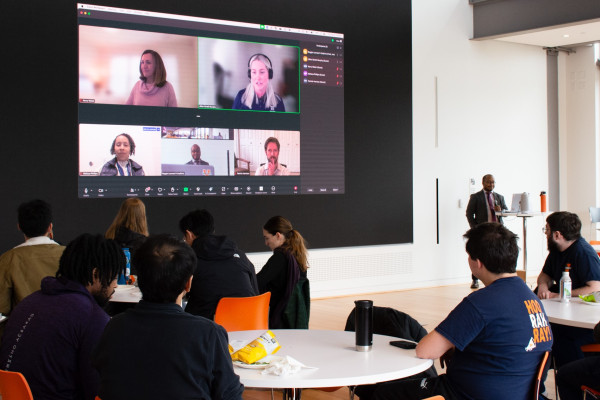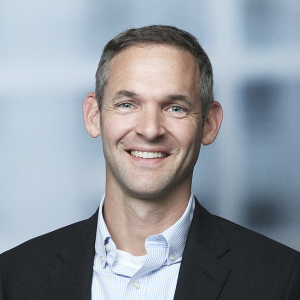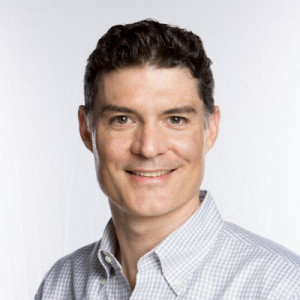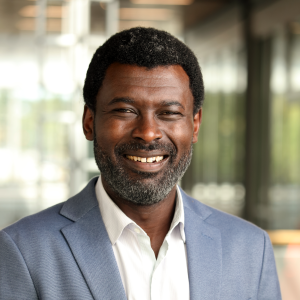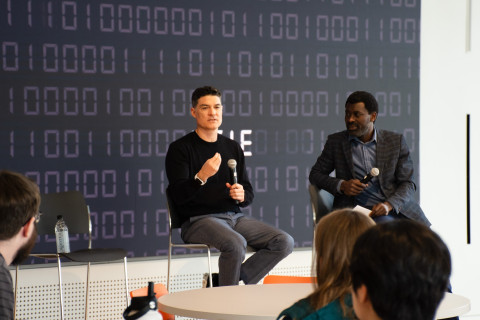
Modeling Your Future: MSDS Students Gain Private-Sector Insights
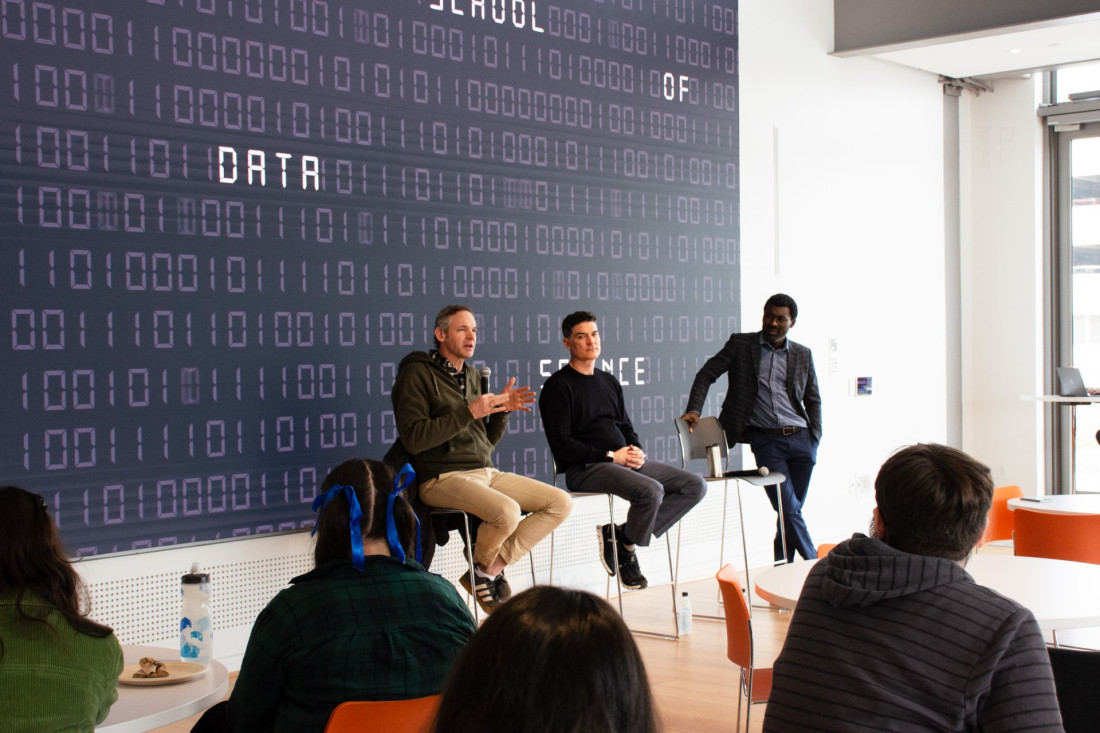
After a successful run in the fall, the Modeling Your Future series for students in the M.S. in Data Science program returned in January. This year’s first edition featured a panel discussion with two professors that shared insights from both their time in the classroom and their continued work in the private sector.
Christian Wernz, Lead Data Scientist at Sentara Health, teaches a course on health care data science in the MSDS Online program, while Jason Williamson is Assistant Professor of Practice in Data Science in addition to his role as Executive Director at Oracle and his work on startups including TruePath Vision. Both speakers brought unique perspectives on the challenges and opportunities in data science careers.
Speaker Spotlights
Wernz shared his journey from academia, where he had stints teaching health care administration as well as industrial and systems engineering, to becoming a lead data scientist in health care. He highlighted the complexity of the U.S. health care system and his passion for using data science to address its challenges. In fact, the reason he left academia initially was to learn about data science, saying one of the best ways to do that is getting hands-on experience with data.

His dual role — leading data science projects at Sentara Health while teaching — allows him to bridge the gap between theory and practice. Wernz emphasized the importance of technical skills such as Python, SQL, and machine learning, as well as the need for clear communication and the ability to work collaboratively across disciplines.
Williamson provided additional perspective, drawing on his experiences in both corporate and startup environments. As a founder of a startup using AI for anti-trafficking efforts, Williamson underscored the importance of applying data science to solve meaningful, real-world problems. He encouraged students to remain curious, build strong portfolios showcasing their projects, and confidently apply for roles even if they do not meet all the listed qualifications.
Key Takeaways for Student Success
The speakers shared several actionable insights for students:
• Technical Proficiency: Develop foundational skills in Python, SQL, and data visualization. While tools like ChatGPT can assist, a deep understanding of programming basics is essential to avoid errors and build confidence.
• Soft Skills: Communication, organizational abilities, and adaptability are critical. Wernz highlighted how effective collaboration with stakeholders, such as physicians and IT teams, is often the key to successfully deploying data science solutions.
• Curiosity and Initiative: Williamson stressed the importance of taking on side projects, contributing to open-source initiatives, and exploring new challenges to build a strong portfolio and demonstrate a lifelong learning mindset.
Memorable Advice from the Speakers
Wernz recounted a project where misunderstanding between data scientists and health care professionals initially delayed progress. He emphasized the importance of taking ownership of projects and ensuring clear communication across teams to align goals.
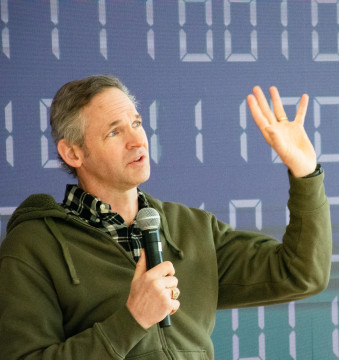
“The more perspectives involved, the more challenging it becomes,” Wernz said. “That’s also a reflection of how complex the problem is because there’s not a single person on that call who understands the whole thing, so often you have to become that person.”
Williamson’s advice centered on being willing to step into the unknown. “When you see a job posting with 10 requirements and you have six of them, apply anyway,” Williamson said. “Employers value high-capacity learners who can grow into roles.”
Wernz concurred, noting how a mentor told him that he had never seen a single candidate that was truly excellent at every required skill. Everyone has strengths and weaknesses, he said, and a good hiring manager will seek out team members that complement each other.
Real-World Applications and Insights
Wernz illustrated the practical challenges of deploying data science models in health care, such as predicting sepsis in patients. He explained how navigating complex systems like the EPIC health care platform requires not only technical expertise but also persistence and collaboration with IT and clinical teams. Meanwhile, Williamson’s reflections on startup life offered a glimpse into the fast-paced, creative problem-solving environment of smaller organizations, contrasting it with the structured processes of large corporations.
Events like these offer invaluable guidance to students preparing to enter the workforce. By learning from seasoned professionals, the School of Data Science’s MSDS students will look to be better equipped to tackle the challenges of a data-driven world. As Williamson noted, “Be okay stepping into stuff that you don’t really know about.” This mindset, coupled with technical and soft skills, positions students to excel in their careers.
Upcoming Events
The Modeling Your Future series is set to continue Feb. 6 with a data science recruiter panel in the Capital One Hub at 12:30 p.m. ET, with additional sessions every other Thursday throughout the spring semester.
